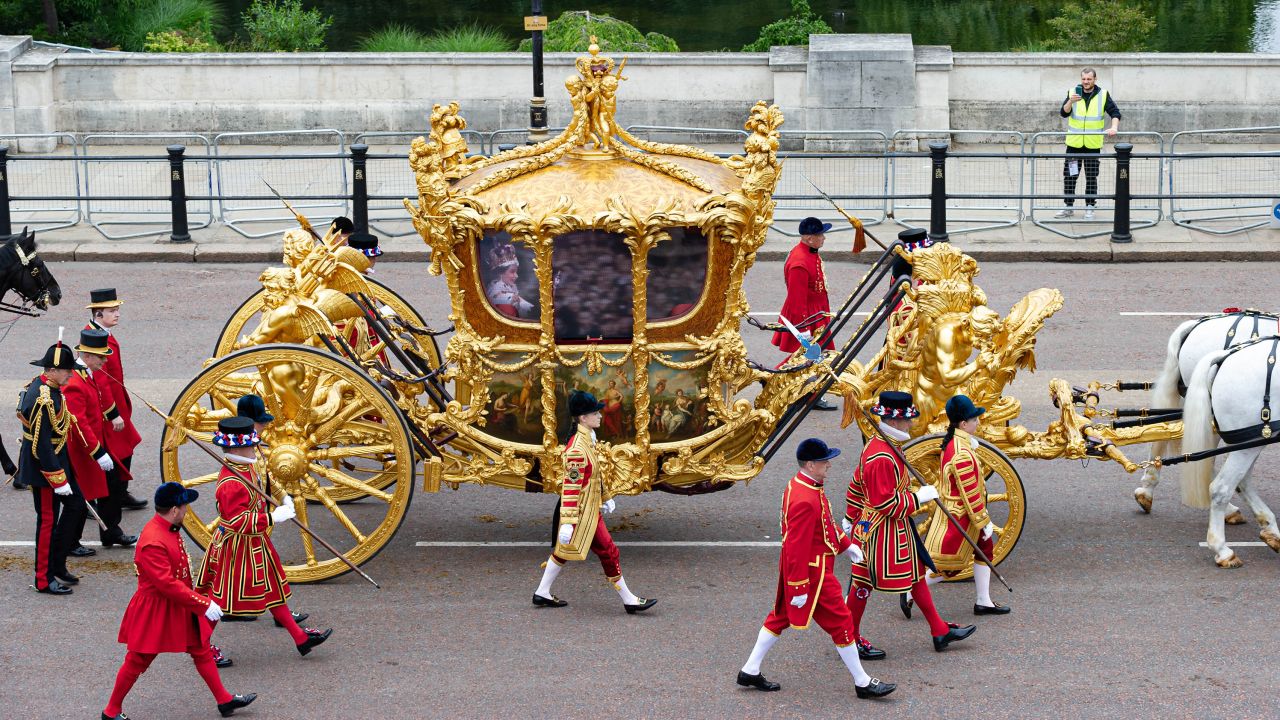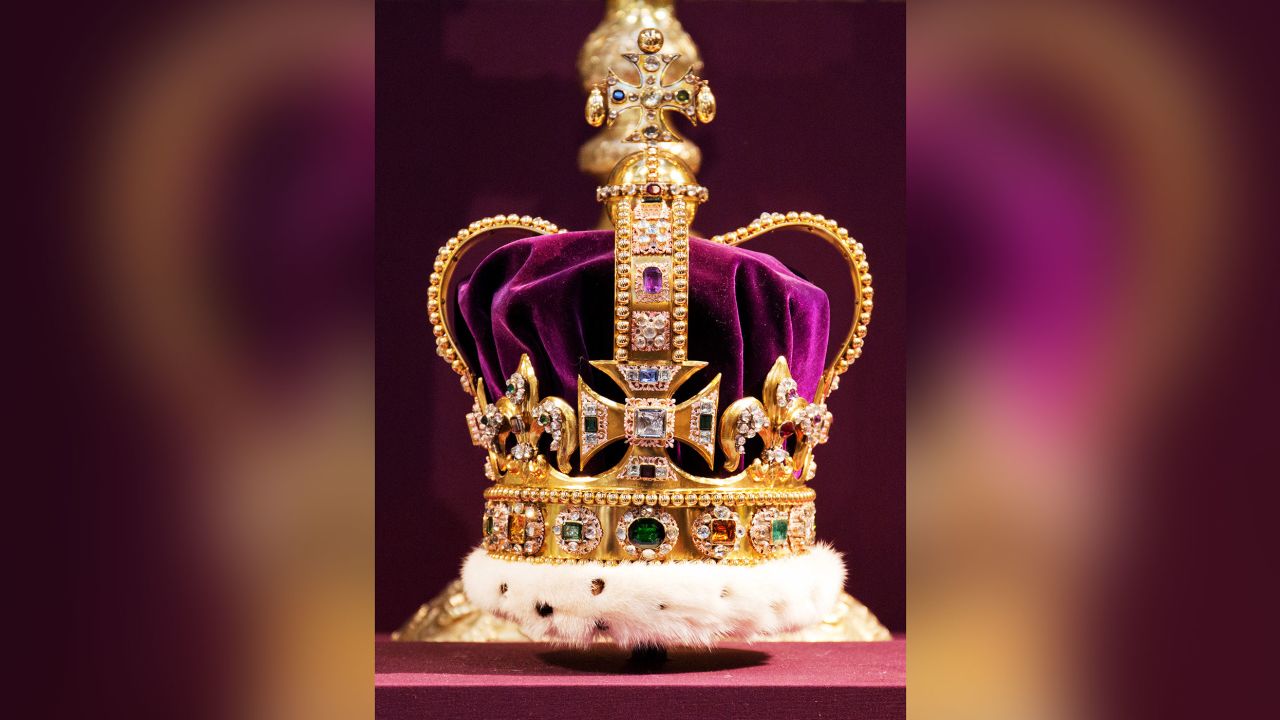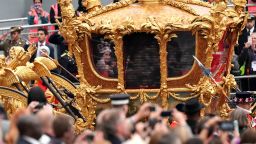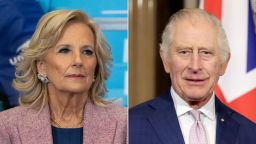begin quote from:
https://www.cnn.com/2023/04/09/uk/king-charles-iii-coronation-route-carriages-regalia-intl-scli-gbr/index.html
Carriages, Crown Jewels … and an emoji. New details of King Charles’ coronation revealed
Buckingham Palace on Sunday revealed further details ahead of the coronation of King Charles III, which will take place in London in less than a month’s time.
The new British sovereign will be crowned alongside his wife, Camilla, in a deeply religious service at Westminster Abbey that will take place on the morning of May 6.
There will be two processions through the streets of the British capital on coronation day – one taking the King to be crowned and a larger parade back to Buckingham Palace after the historic service, where the monarch and members of the royal family will make a balcony appearance.
In addition to the new details on processional routes, carriages and coronation regalia, a new emoji has even been designed to mark the celebrations. Based on St Edward’s Crown, it will appear on Twitter when coronation hashtags are used over the holiday weekend.
Journey to Westminster
For the drive to the service, King Charles has opted to ride in the Diamond Jubilee State coach. One of the newer carriages in the Royal Collection, it was built in Australia and delivered to the late Queen Elizabeth II in 2014, when it was used for the first time at the State Opening of Parliament that year.
“Inside is beautifully upholstered in primrose yellow silk, and also fitted into the interior, our particular specimen woods. It’s a real microcosm of British and world history. There’re woods from the royal residences, from explorations and from other countries and nations as well,” says Sally Goodsir, the Royal Collection Trust’s curator of decorative arts.

She says one thing well-wishers might be surprised by is how large the vehicle is. “It’s significantly taller than any car on the road today, and it has this huge gold crown on the top – amazingly carved with oak from HMS Victory, one of the Royal Navy’s 18th-century flagships,” Goodsir explains.
“It’s incredibly exciting – this gold coach carrying the sovereign beautifully lit inside so that they can be seen by the crowds on coronation day.”
The procession will leave Buckingham Palace and head down the Mall accompanied by The Sovereign’s Escort of the Household Cavalry. It will pass through Admiralty Arch before turning on to Whitehall and traveling along Parliament Street and on to Westminster Abbey where the service will start at 11 a.m. (6 a.m. ET).
Royal procession
Following the service, the coronation procession – which will be much larger in scale – will take the same route back to the palace. It will feature “Armed Forces from across the Commonwealth and the British Overseas Territories, and all Services of the Armed Forces of the United Kingdom, alongside The Sovereign’s Bodyguard and Royal Watermen,” according to the palace.
This time, Charles and Camilla will be conveyed in the Gold State Coach, which has been used in every coronation since William IV in 1831.
“It is nearly four meters tall. It’s over seven meters long. It weighs four tons. Because of that it can only be used at a walking pace, which really adds to the majesty and stateliness of this great royal procession,” Goodsir says. “There are very few monarchies which have retained coaches working of this age, and therefore it’s an incredibly special thing to see.”

She adds that it’s covered in painted panels “that exemplify” what George III, who was monarch when the coach was built in 1762, believed he would bring to the nation.
“Protecting the arts such as architecture and sculpture; protecting peace in this nation, there’s figures of Mars and Minerva, the classical gods of war, but they’re not at war, they’re actually holding the British Crown aloft. So, there’s lots of messages and symbolism,” she continues.
Once back at Buckingham Palace, the armed forces in the parade will offer a royal salute to the royal couple followed by three cheers from assembled service personnel.
The holiday weekend will also see a massive music concert take place at Windsor Castle, similar to the star-studded show during the late Queen’s Platinum Jubilee celebrations last summer as well as nationwide street parties and a day of volunteering.
Symbols of the monarch
The palace has also outlined the coronation regalia which are “sacred and secular objects” symbolic of the “responsibilities of the monarch” that will be featured in the Westminster service.
The regalia – which is held in trust by the monarch on the nation’s behalf – have played a principal role in coronation services for centuries.
Among the treasures to be used, which are usually on public display at the Tower of London, will be the Imperial State Crown which is only used at ceremonial events and was made for the King George VI’s 1937 coronation. Charles will exchange it for St Edward’s Crown at the end of the service. Made of solid gold and trimmed with ermine and velvet, it is famously heavy – weighing more than five pounds (2.23kg).

As previously announced, Camilla is reusing Queen Mary’s Crown rather than commission a new one to be made.
Two heavy maces made of silver gilt over oak and several ceremonial swords – The Sword of State, the Sword of Temporal Justice, the Sword of Spiritual Justice and the Sword of Mercy – will also be used. Additionally, several instruments of state will feature including the Sovereign’s orb and two scepters, which represent the monarch’s temporal power and spiritual role.
On the guestlist
It was also revealed over the weekend that more than 850 community representatives and key workers are being invited to the festivities in acknowledgment of their philanthropic work.
The list of invitees includes 450 recipients of British Empire medals, who will make up some of the 2,000-strong congregation, as well as 400 young people from organizations selected by Charles and Camilla, who will have a special private viewing of the coronation from nearby St Margaret’s Church.
The elaborately-designed coronation invitation reflecting the King’s love of nature was unveiled last week, with royal-watchers quickly zeroing in on the use of the title “Queen Camilla” for the first time.
A royal source told CNN it had “made sense” to refer to Camilla as Queen Consort in the early months of the new King’s reign so as “to distinguish from Her Majesty Queen Elizabeth II.”
The source added that the coronation is “an appropriate time” to transition titling and that that “all former Queen Consorts have been known as ‘Queen’ plus their first name.”
Sign up for CNN’s Royal News, a weekly dispatch bringing you the inside track on the royal family, what they are up to in public and what’s happening behind palace walls.




No comments:
Post a Comment